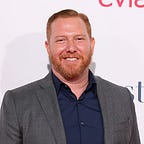What You Need to Know About Charlie Wilson’s War and Perfect Casting
Released in 2007, Charlie Wilson’s War is one of the more entertaining political dramas Hollywood has ever produced. In many ways, this is thanks to the script, which benefits from Aaron Sorkin’s whip-smart, rapid-paced dialogue. However, strong dialogue isn’t effective if the actors delivering the lines aren’t equipped to turn the words on the page into strong, human performances.
That’s another reason Charlie Wilson’s War is such an effective film. It reminds viewers what filmmakers can do when they assemble the ideal team of talented performers. Although essentially all members of the cast bring their A-game to the table, the film particularly benefits from the work of its three primary leads. They’re perfectly cast, making sure a film that could have been a slightly tedious geopolitical history lesson ends up being pure Hollywood entertainment with a purpose. Here’s how:
Tom Hanks Is America
Tom Hanks play the film’s title character, a Texas congressman who coordinates with the CIA to arm rebels in Afghanistan during the Cold War. Charlie Wilson was notoriously charismatic, and thus required an actor with natural charm to play him.
Tom Hanks is the perfect choice. Throughout his career, Hanks has established himself as America’s latest Jimmy Stewart, a performer who loves his country, but not blindly. He has enough of a conscience to understand that a country can never rest on its laurels. His roles have often celebrated what is best about America.
Thus, casting him as Charlie Wilson makes perfect sense. In the film’s script, Wilson often speaks to the higher ideals of democracy without coming across as pretentious or dull. He believes in the virtue of America, but he also knows that preaching to any audience is no way to make an impression. He gets his message across with equal doses of conviction and humor. It’s the kind of role Tom Hanks was born to play.
Julia Roberts Owns Her Success
In Charlie Wilson’s War, Julia Roberts plays Joanne Herring, a successful American businesswoman who used her social and financial clout to help Wilson get his message across.
Herring is an exceptional Hollywood character. Too often, films depict men in powerful roles. When reality forces directors to cast women (again, the film is based on a true story), those women are often depicted as somewhat reluctant to use their power. They generally don’t seem as comfortable with it as male characters.
This is a very limited way of perceiving women, and luckily, Charlie Wilson’s War doesn’t fall prey to it. Herring does not come across as a woman who is uncomfortable with her success. Instead, she knows she’s earned it, and she’s using the power she’s acquired to make a positive change in the world.
This is a great role for someone like Julia Roberts. Having demonstrated her talents time and time again, Julia Roberts has long been considered one of the most influential women in Hollywood. She attained that status by delivering quality performances in movies spanning a wide range of genres. Roberts continues to use her influence to grow as a performer, tackling interesting projects like this one. Just like her character in Charlie Wilson’s War, Roberts comes across as a confident woman who knows she can achieve her goals.
Philip Seymour Hoffman Blends Thoughtfulness and Humor
Casting should be dynamic. If each performer brings the same type of energy to their role, no character can stand out.
That’s why casting Philip Seymour Hoffman opposite Tom Hanks and Julia Roberts is brilliant. Although every main character in this film is essentially pursuing the same goal, they approach the situation with different attitudes. For instance, while Hanks plays a character who is enthusiastic in pursuit of his goal, Hoffman’s character is more thoughtful and cynical. As an accomplished CIA operative, he understands the potential consequences of disrupting an already unstable region, and although he believes in what he and the other characters are doing, he’s not blind to the potential for everything to go wrong in the aftermath.
Of course, this type of character could come across as a bore in the wrong performer’s hands. Hoffman, as usual, lends the character a wry humor that ensures the audience still likes him.
Strong casting like this is essential to the success of any film, especially one as well-written as Charlie Wilson’s War. That said, strong casting isn’t always easy. Filmmakers must carefully assess what type of energy each character should bring to the film. When they take the time to do so, they’re more likely to cast the right actors.
Originally published at ryankavanaugh.net on May 29, 2018.
